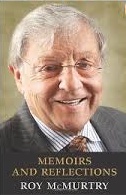Fellowships and Awards
John T. Saywell Prize for Canadian Constitutional Legal History
The Saywell Prize is made possible by the generosity of his family and friends, to recognise the outstanding contribution to Canadian political and legal history of Professor Saywell. Among his other work Professor Saywell is the author of The Law Makers: Judicial Power And The Shaping of Canadian Federalism, published by the Osgoode Society in 2002.
The Saywell Prize is given bi-annually to the best new book in Canadian legal history, broadly defined, that makes an important contribution to an understanding of the constitution and/or federalism. In exceptional circumstances, the jury could also consider a seminal article or series of articles, some of the latter not written in the two-year period, to satisfy the objectives of the award.
The Saywell Prize next will be awarded in 2025, for a book published in 2023 or 2024. The deadline for nominations is May 31, 2025. Please email nominations to j.phillips@utoronto.ca.
Previous Winners of the Saywell Prize
- 2022 – Professor Jordan Stanger – Ross and Professor Eric Adams, Landscapes of Injustice: A New Perspective on the Internment and Dispossession of Japanese Canadians (McGill-Queens University Press, 2021).
- 2020 – Professor Kent McNeil, Flawed Precedent: The St Catherine’s Case and Aboriginal Title (UBC Press, 2019).
- 2018 – Peter H. Russell, Professor Emeritus at the University of Toronto, Canada’s Odyssey: A Country Based on Incomplete Conquests (University of Toronto Press, 2017).
- 2015 – Hakeem Yusuf, Reader in Law, Strathclyde University: Colonial and Post-Colonial Constitutionalism in the Commonwealth: Peace, Order and Good Government (Routledge, 2014).
- 2013 – Michael S. Cross, Professor Emeritus of History at Dalhousie University, The Morning Star of Memory: A Biography of Robert Baldwin (Oxford University Press, 2012).
- 2011 – Douglas Harris, Professor, University of British Columbia Law School, Landing Native Fisheries: Indian Reserves and Fishing Rights in British Columbia, 1849-1925
(University of British Columbia Press, 2009). - 2009 – Janet Ajzenstat, Professor Emerita at McMaster University, The Canadian Founding: John Locke and Parliament(McGill-Queen’s University Press, 2007).

Professor Doug Harris
Saywell Prize Recipient, 2011
R. Roy McMurtry Fellowship in Legal History
The R. Roy McMurtry Fellowship in Legal History was created in 2007, on the occasion of the retirement as Chief Justice of Ontario of the Hon. R. Roy McMurtry. It honours the contribution to Canadian legal history of Roy McMurtry, Attorney-General and Chief Justice of Ontario, founder of the Osgoode Society for Canadian Legal History and for many years the Society’s President.
The fellowship of at least $17,000 is to support graduate students or those with a recently completed doctorate, to conduct research in Canadian legal history, for one year. Preference will be given to doctoral students who are close to completing their programme. Scholars working on any topic in the field of Canadian legal history are eligible. Applicants should be enrolled in a graduate programme at an Ontario University or, if they have a completed doctorate, be affiliated with an Ontario university.
The fellowship may be held concurrently with other awards for graduate study. Eligibility is not limited to history and law programmes; persons in cognate disciplines such as criminology or political science may apply, provided the subject of the research they will conduct as a McMurtry fellow involves Canadian legal history. The selection committee may take financial need into consideration. Applications will be assessed by a committee appointed by the Osgoode Society for Canadian Legal History.
Please complete the online application and provide a full curriculum vitae and statement of research intent that details the research you would complete during the tenure of the fellowship (800 to 1,000 words). Application packages should be emailed to Amanda Campbell at amanda.campbell@osgoodesociety.ca or by post: McMurtry Fellowship Selection Committee, Osgoode Society for Canadian Legal History, Osgoode Hall, 130 Queen Street West, Toronto, M5H 2N6.
The deadline for applications is May 31, 2025.
Previous Winners of the McMurtry Fellowship
- 2024 – Taylor Starr is a P.H.D candidate at York University. The focus of her work centers on the challenges faced by women in attaining professorial positions within Canadian law schools during the late twentieth century, a period marked by increasing female representation within the legal profession.
- 2024 – Margaret Ross is a P.H.D candidate at Queen’s University. Her work will provide the first comprehensive historical examination of sex work in Ontario from 1860 to 1930.
- 2024 – Honourable Mention – Preston Lim is a S.D.J candidate at University of Toronto – Faculty of Law. . He intends to write a contextual history of the Canadian New Deal Cases shortly before the 1935 federal election.
- 2024 – Honourable Mention – Catherine Le Guerrier is a P.H.D. student at Osgoode Hall Law School. Her work provides the first comprehensive historical examination of sex work in Ontario from 1860 to 1930.
- 2023 – Kenneth Grad is a P.H.D. candidate at York University. His legal-historical
study is the prosecutions of Holocaust deniers Ernst Zündel and James Keegstra in the 1980’s and their appeals to the Supreme Court of Canada in the early 1990’s. - 2023 – Melanie Ng is a P.H.D. candidate at the University of Toronto. Her research is on Chinese migration, immigration regulations, and law.
- 2022 – Daniel Rohde is an SJD student at Harvard Law School. His research examines the legal history of the Bank of Canada, 1933-1967.
- 2022– Honourable Mention – Erin Gallagher-Cohoon is a P.H.D. student in the history department at Queen’s University. her research examines Canadian histories of queer parenting and queer family formations in the twentieth century.
- 2021 – Tyler Wentzell is an SJD student at the University of Toronto Faculty of Law. His work examines the legal history of Canada’s use of the military
in domestic operations: from “strike-breaking” and other instances of local aid of the civil power, to its use by the federal government to reassert control in times of insurrection or to establish control on the state’s periphery. - 2021-Honourable Mention – Kenneth Grad is a second-year Ph.D. candidate at Osgoode Hall Law School, York University. His work is a legal-historical study of one of the pivotal moments in Canadian legal history and Canadian Jewish history: the prosecutions of Holocaust deniers Ernst Zundel and James Keegstra in the 1980’s.
- 2021-Honourable Mention – Taylor Starr is a Ph.D. Candidate in History at York University. Her project is titled “Invisible Barriers: Gendered Problems in Canadian Law Faculties, 1965-1994”.
- 2020 – Jean-Christophe Bédard-Rubin, a doctoral student in the Faculty of Law, University of Toronto, who is writing an intellectual history of Ētienne Parent, a leading Quebec constitutional thinker in the immediate pre- and post-Confederation period.
- 2020 – Honourable Mention: Michael Borsk is a Ph.D. student in history at Queen’s University. He is researching the history of ideas about private property and sovereignty in Ontario and Michigan in the first half of the nineteenth century.
- 2020 – Honourable Mention: Krista Barclay received her PhD from the University of Manitoba and is currently a post-doctoral fellow at the Department for the Study of Religion at the University of Toronto. She is working on inheritance law in nineteenth-century British North America.
- 2019 – Anna Jarvis, a PhD student in the History Department at York University, who is working on the life and times of Edward Jarvis, Chief Justice of Prince Edward Island from 1828 to 1852.
- 2019 – Filipo Sposini, PhD student in the Institute for the History and Philosophy of Science and Technology at the University of Toronto, who is working on the law and practice of civil confinement for insanity in nineteenth-century Canada.
- 2018 – Chandra Murdoch, a PhD student in the History Department at the University of Toronto who is working on the application of the first Indian Act (1876) in Ontario.
- 2018 – Daniel Murchison, a PhD student in the History Department at York University, who is working on the effects of legal change on land-holding and family structure among the indigenous peoples of the Red River valley.
- 2017 – Dennis Molinaro , PhD from the University of Toronto, for study of the law of Canadian security measures and proceedings.
- 2016 – Jacqueline Briggs, a doctoral student in Criminology at the University of Toronto, for work on aboriginal peoples and criminal justice.
- 2015 – Elizabeth Koester, a doctoral student in history at the University of Toronto, for work on eugenics in twentieth century Ontario.
- 2014 – Peter Price, completing a doctorate in history at Queen’s University, and working on a post-doctoral project on lawyers and legal and constitutional thought in late nineteenth and early twentieth century Canada.
- 2013 – Edward Cavanagh, a PhD student at the University of Ottawa, is working on the history of chartered companies in Canada, with specific reference to their role in land settlement and the development of doctrines related to aboriginal dispossession.
- 2013 – Joseph Dunlop, who recently obtained his PhD from oxford, will be a fellow and Emanuel College, University of Toronto, working on the role played by Catholic politicians in the various law reforms related to sexuality of the 1960s and 1970s.
- 2012 – Patrick Connor, a post-doctoral student in history at York University, for work on a history of crime and punishment in Upper Canada.
- 2011 – Daniel Rueck, a research associate at the University of Western Ontario, for his post-doctoral work on land use and allocation on Mohwak reserves.
- 2010 – Claire Mumme, a doctoral student in legal history at Osgoode Hall Law School, York University, for a project on The History of the Contract of Employment in Twentieth Century Canada.
- 2010 – Stacey Alexopoulos, a doctoral student in the Department of History, York University, who is writing a thesis on the development of property rules governing housing on aboriginal reserves since 1951.
- 2009 – Mary Stokes, a doctoral student in legal history at Osgoode Hall Law School, for a study of municipal law in nineteenth-century Ontario.
- 2008 – Dr. Melanie Brunet, for work on legal education in the twentieth century
- 2008 – Bradley Miller, a history Ph.D. student at the University of Toronto, for work on the history of Canadian extradition.
Peter Oliver Prize in Canadian Legal History
The Peter Oliver Prize in Canadian Legal History was established by the Society in 2006 in honour of Professor Peter Oliver, the Society’s founding editor-in-chief. The prize is awarded annually for published work (journal article, book chapter, book) in Canadian legal history written by a student.
Students in any discipline at any stage of their careers are eligible. The Society takes a broad view of legal history, one that includes work in socio-legal history, legal culture, etc., as well as work on the history of legal institutions, legal personnel, and substantive law.
Students may self-nominate their published work, and faculty members are also encouraged to nominate student work of which they are aware. Those nominating their own work should send a copy of it to the Society.
The deadline for nominations for the 2025 Prize, to be awarded for work published in 2024, is May 31, 2025.
Please send nominations to Professor Jim Phillips, Editor-in-Chief, Osgoode Society for Canadian Legal History, Osgoode Hall, 130 Queen Street West, Toronto ON M5H 2N6, or by email to j.phillips@utoronto.ca.
Previous Winners of the Peter Oliver Prize
- 2024 – Simon Wallace, ‘Police Authority is Necessary’: The Canadian Origins of the Legal Powers to Detain and Deport, 1883-1902’, published in the Queen’s Law Journal, Volume 48, 2023, 101-144.
- 2024 – Michael Borsk, ‘Conveyance to Kin: Property, Preemption and Indigenous Nations in North America, 1763-1822,’ published in the William and Mary Quarterly, Volume 80, 2023, 87-124.
- 2023– Kenneth Grad, ‘A Gesture of Criminal Law: Jews and the Criminalization of Hate Speech in Canada’, published in Osgoode Hall Law Journal, Vol 59, 2022.
- 2022– Jean-Christophe Bédard-Rubin, ‘L’émergence inattendue de la dualité institutionelle à la Cour suprême du Canada depuis Pepin-Robarts’, published in Bulletin d’histoire politique, Vol 29, 2021.
- 2021– Paul Jon, ‘Tenant Organizing and the Campaign for Collective Bargaining Rights in British Columbia, 1968-1975’, BC Studies, No 206, 2020.
- 2020 – Jacqueline Briggs, ‘Exemplary Punishment: T.R.L. MacInnes, The Department of Indian Affairs, and Indigenous Executions, 1936-1952″, Canadian Historical Review Vol 100, 2019.
- 2019 – Suzanne Chiodo, The Class Actions Controversy: The Origins and Development of the Ontario Class Proceedings Act, (Irwin Law, 2018).
- 2018 – David Sandomierski, ‘Tension and Reconciliation in Canadian Contract Law Casebooks,’ Osgoode Hall Law Journal Vol 54 , 2017.
- 2017 – Jason Hall, ‘High Freshets and Low-Lying Farms: Property Law and St John River Flooding in Colonial New Brunswick’, Dalhousie Law Journal, Vol 39, 2016.
- 2016 – Dennis Molinaro, ‘Section 98: The Trial of Rex v. Buck et al and the ‘State of Exception’ in Canada, 1919-1936′, in Barry Wright, Eric Tucker and Susan Binnie, eds., Canadian State Trials Volume IV: Security, Dissent, and the Limits of Toleration in War and Peace, 1914-1939 (Toronto: Osgoode Society for Canadian Legal History and University of Toronto Press, 2015).
- 2015 – Edward Cavanagh, ‘Possession and Dispossession in Corporate New France, 1600-1663: Debunking a “Juridical History” and Revisiting Terra Nullius,’ Law and History Review, vol 32, 2014.
- 2015 – Tyler Wentzell, ‘The Court and that Cataracts: The Creation of the Queen Victoria Niagara Falls Park and the Ontario Court of Appeal,’ Ontario History, vol 106, 2014.
- 2014 – Mary Stokes, ‘Grand Juries and ‘Proper Authorities”: Low Law, Soft Law, and Local Government in Canada West/Ontario, 1850-1880‘, in G. Blaine Baker and Donald Fyson, eds., Essays in the History of Canadian Law: Volume XI Quebec and the Canadas (Toronto: Osgoode Society for Canadian Legal History and University of Toronto Press, 2013).
- 2013 – Susan McKelvey, ‘Creating the Myth of Raceless Justice in the Murder Trial of R. v. Richardson, Sandwich, 1903.’
- 2013 – David Steeves, ‘Maniacal Murderer or Death Dealing Car: The Case of Daniel Perry Samson, 1933-1935.’
Both essays were published as chapters in Barrington Walker, ed., The African Canadian Legal Odyssey: Historical Essays (Osgoode Society, 2012). - 2012 – Edward Cavanaugh, ‘A Company with Sovereignty and Subjects of Its Own? The Case of the Hudson’s Bay Company, 1670-1763’, Canadian Journal of Law and Society, Vol 26, 2011.
- 2011 – Jonathon Penney, ‘Ivan Rand’s Ancient Constitutionalism, ‘University of New Brunswick Law Journal , Vol 61, 2010.
- 2010 – Bradley Miller, ” ‘A Carnival of Crime on our Border:’ International Law, Imperial Power, and Extradition in Canada, 1865-1883,” Canadian Historical Review, vol 90, 2009.
- 2009 – Myles Leslie, “Reforming the Coroner: Death Investigation Manuals in Ontario, 1863-1894,’ Ontario History, vol 100, 2008.
- 2008 – Eric Adams, “Canada’s ‘Newer Constitutional Law’ and the Idea of Constitutional Rights,” McGill Law Journal, vol 51, 2006.

Peter Oliver
Other Student Awards
Canadian Law School/Osgoode Society Award
The Society, in co-operation with Canadian law schools, offers an annual award to a student deemed to have done excellent work in legal history. The Society provides three books from its back list and also a current membership, which includes the annual members’ book. The award is principally for a student in a J.D. programme, but if there is no student paper of sufficient quality in a given year the award can be given to a student in a graduate programme.
Law Society Of Upper Canada/Osgoode Society Award Of Excellence.
Since 2000 the Law Society and the Osgoode Society have presented Osgoode Society memberships to the top 15 graduating students in each of Ontario’s law schools.

